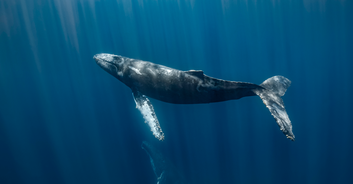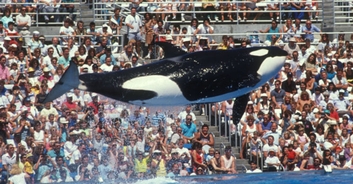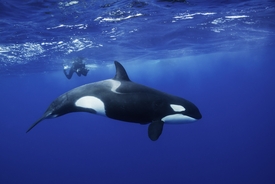An incident has led to more than 130 dolphins dying after beaching themselves in a mysterious case of mass stranding.
The occurrence, which is currently being investigated by volunteers and marine biologists, allegedly occurred off the coast of West Africa earlier this week.
Check out this incredible video of two dolphins spotted in a river in Louisiana:The 163 melon-headed dolphins were found stuck on a sandy beach on the island of Boa Vista. A number of images of the distressed animals have since appeared on social media, after being uploaded to social media by the volunteer environmental association, BIOS Cape Verde.
On Wednesday, September 25: a spokesperson for the organisation wrote on the group's official Facebook page that: "Yesterday around 6 am BIOS was called to the rescue of melon-headed whales in the eastern side of the island. Around 163 individuals were stranded including adults, juveniles and calves."
They continued: "Approximately 100 people participated in the rescue efforts including the Agriculture and Environment Ministry, Maritime Authorities, local firefighters, Fisheries Inspector, National Police, local NGOs ... [and] members from the Norte and Bofareira local communities."
They added: "Unfortunately, upon being reintroduced in the sea, most of the animals stranded again. Tomorrow after collecting the samples we will have an estimate on the number of deaths. We thank everyone who showed up to help with the rescue efforts."

Marine biologists have offered a variety of explanations for the phenomenon of cetacean stranding, but no hypothesis has yet been accepted as conclusive.
Some zoologists believe that mass strandings can actually be blamed on human interference, and have argued that sonar from submarines has disrupted the navigational senses of dolphins, leading to them beaching themselves.
Other experts postulate that strong oceanic currents or high winds can end up dragging the creatures onto the shore, leaving them suddenly helpless when the tide goes out.
This isn't the first time we've written about these beautiful animals. Check out this article we penned about the mother dolphin who was spotted 'leaping for joy' when she was reunited with her baby.




